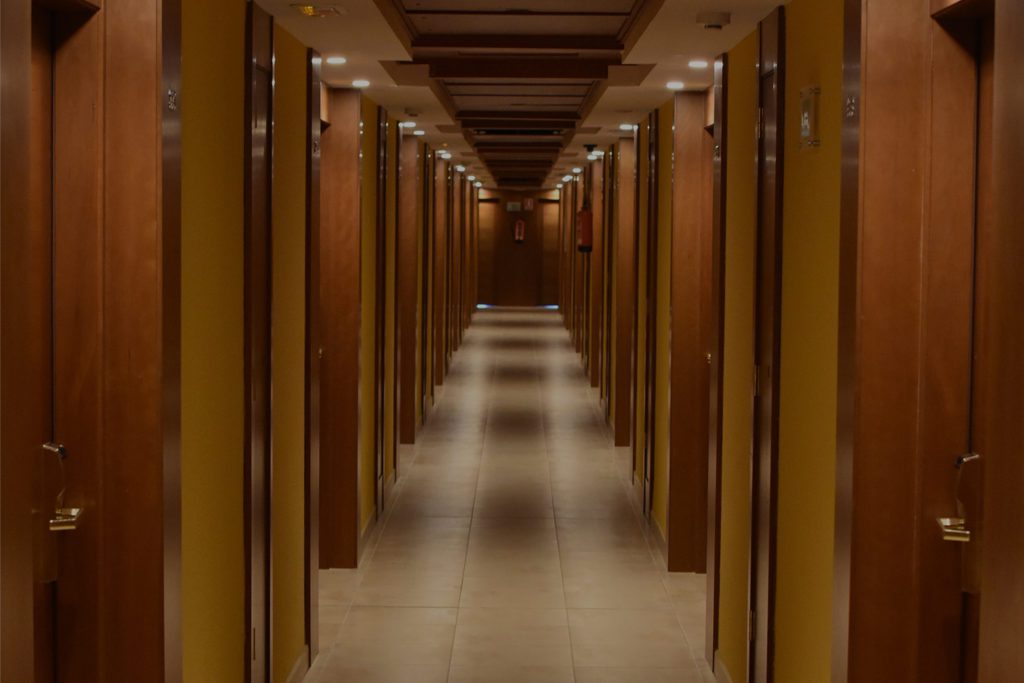Mitigating Risks Associated with Hotel, Restaurant and Entertainment Industry Economic Challenges – Part 8: Post-COVID-19 Considerations for Lending in the Hospitality Industry
Reading Time: 4 minutes
This series has provided a high-level overview of various options and considerations available to lenders during the current uncertainty surrounding lending in the hospitality industry. It is without question that lending institutions will see significant changes as a result of COVID-19 and with the incoming presidential administration.
The first-half of this series evaluated considerations for lenders faced with borrowers who were unable to meet their mortgage and loan obligations. We have explored pre-foreclosure loss mitigation options (Part 2); commercial mortgage default options including acceleration and enforcement of personal guarantees (Part 3); and assignment of rents under Section 697.07, Florida Statutes (Part 4).
The second-half of this series evaluated options available to lenders during the commercial foreclosure process. We have explored the commercial foreclosure process (Part 5); the appointment of receivers (Part 6); and using Section 702.10, Florida Statutes, to expedite the commercial foreclosure process (Part 7).
We now conclude this series by generally discussing considerations for lending in the post-COVID-19 era. While we are not there yet, COVID-19 will eventually subside, but its effects will likely result in significant changes throughout the hospitality industry and significant changes to lending practices associated with the hospitality industry. Some of these changes may come from governmental regulations, which will likely change given the incoming presidential administration. Other changes may come from revisions to internal processes and procedures by lending institutions.
Opportunities to Gain Concessions in Loan Workouts with Existing Borrowers
Due to the effect of COVID-19 on the hospitality industry, lenders will likely be faced with requests for loan workouts and necessary restructuring. As discussed in Part 2 of this series, there are various loan workout options available to lenders including deferments or forbearances, loan modifications, or a combination of deferments, forbearances, modifications and other components. Loan workouts and restructuring may allow lenders to obtain key concessions, such as obtaining liens on other assets, obtaining personal guaranties and modifying loan documents (e.g., to include an assignment of rents provision). Loan workouts and restructuring may allow lenders to avoid the time, expense and uncertainty of litigation and foreclosures.
Avoiding Lender Liability
While loan workouts and restructuring is common, lenders need to proceed with caution when dealing with borrowers to avoid potential lender liability. Borrowers may allege lender liability if a lender exercises excessive control over the business affairs of a borrower or engages in fraudulent or inequitable conduct. One way to avoid potential alleged lender liability is for the lender to carry on its business in good faith and promote a dialogue with all of its borrowers about difficult choices that may be necessary given the current economic environment.
Lenders can also protect themselves by avoiding statements or comments that may be perceived as coercive, threatening or controlling. Discussions regarding potential enforcement actions should be presented as being necessary to protect the lender’s rights and interests in the arms-length transaction. While lenders are absolutely entitled to exercise their contractual remedies, given the effects of COVID-19 especially in the hospitality industry, lenders should maintain a record justifying their actions and communicating to all borrowers in a non-threatening manner.
Moving Forward: Future Lending Considerations
Moving forward with new loans, lenders should give great consideration to the effects of COVID-19 and some of the ways that lenders and borrowers could have better protected themselves prior to COVID-19. A few considerations include, but are certainly not limited to: requiring borrowers to obtain business interruption insurance that includes broad coverage such as pandemic coverage; requiring unconditional guarantees; requiring an assignment of rents provision; or properly securing the loan with adequate collateral. Lenders may also limit the amount they are willing to loan to borrowers or may implement risk-shifting amongst various institutions.
Furthermore, lenders may implement forward-looking models to steer origination toward portfolios with the greatest risk-return profiles. In doing so, lenders may evaluate each borrower separately and perform a risk-assessment frequently. Without question, prudent lenders will revisit and revise loan documents to try to better manage risk moving forward especially with regard to lending practices associated with the hospitality industry.
Conclusion
Like all industries, the lending industry will have to adapt to the post-COVID-19 world. Lenders should be ready for anything and keep their eyes peeled for potential opportunities. Besides uncertainty, one thing is for sure, navigating these uncharted waters will take experience, creativity, and tact. Good luck!
Continued Reading in this Mitigating Risks Associated with Hotel, Restaurant and Entertainment Industry Economic Challenge Series:
- Part 1: Introduction and Considerations When Hotels and Restaurants Default on Their Mortgages
- Part 2: Pre-Foreclosure Loss Mitigation Options
- Part 3: Commercial Mortgage Default Options Including Acceleration and Enforcement of Personal Guaranties
- Part 4: Assignment of Rents Under Section 697.07, Florida Statutes
- Part 5: Commercial Foreclosures 101
- Part 6: Considerations for the Appointment of a Receiver During Commercial Foreclosures
- Part 7: Expediting the Commercial Foreclosure Process Under Section 702.10, Florida Statutes


